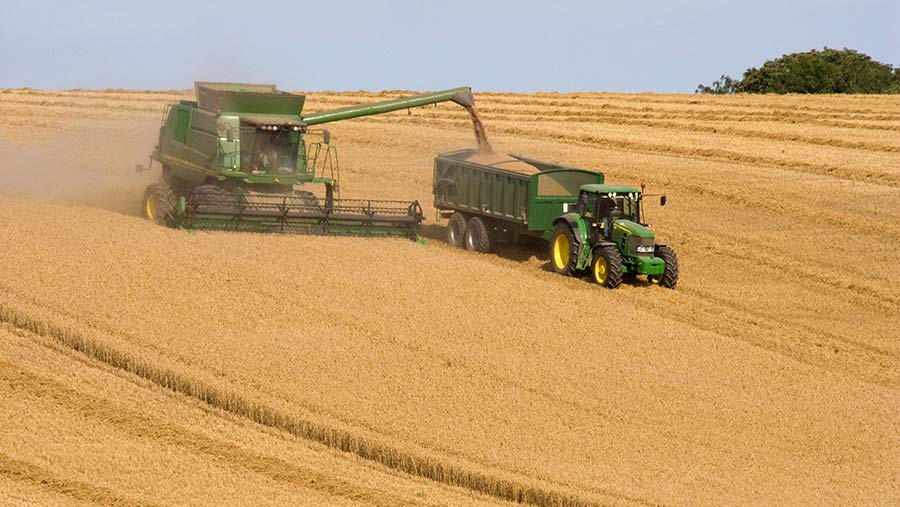Agri-business confidence to fall significantly after Brexit
 © Tim Scrivener
© Tim Scrivener The current positive outlook for business prospects is set to worsen significantly after Brexit, according to a survey of farms and agri-businesses in the north-east of England.
Conducted by the NFU, the survey shows that while 71% of farmer respondents and 82% of food, drink and wider supply chain companies are “very” or “fairly” positive about their business prospects, this drops to just 37% and 51%, respectively, once the UK is outside the EU.
The findings were unveiled on Tuesday (10 July), the first day of the Great Yorkshire Show, and included the key issues affecting business confidence, the importance of export markets and business resilience after Brexit.
See also: Farmer support for Brexit as strong as ever, FW poll reveals
It comes after a tumultuous few days for Brexit talks, with farm leaders heralding an agreement among Cabinet members at Chequers on Friday, 6 July, as a “significant breakthrough”.
The agreement stated that the UK and EU would maintain a “common rulebook” for all goods, including agri-food, and ensure frictionless access to each other’s markets.
However, on Sunday (8 July) Brexit secretary David Davis resigned from his role, claiming the Cabinet’s decision would “make the supposed control by Parliament illusory rather than real”.
Mr Davis has since been replaced by prominent Leave campaigner and Esher and Walton MP Dominic Raab.
Farmers’ positivity falling by half
The NFU survey was conducted in June in Yorkshire, as part of its Pride and Provenance campaign, and received 208 responses from farmers and 51 responses from agri-food companies.
“The importance of agri-food to Yorkshire is undeniable, but with huge change on the horizon, we wanted to see how the sector is faring,” said Adam Bedford, NFU north-east regional director.
“We are very concerned that beyond next year the number of farmers with a positive outlook almost halves and the number of companies feeling optimistic drops by more than a third.”
Of the farmer respondents, 49% said uncertainty and volatility of business costs and farmgate prices was the key issue affecting their confidence, with 11% concerned about uncertainty over future support.
For companies, the top two issues were skills/labour availability (31%) and consumer confidence/falling demand (18%).
End to uncertainty needed
Of the 45% of farmers supplying produce destined for export, 87% said export markets were either “very” or “fairly” important to their business, and 36% of companies said Brexit was expected to affect their export operations or plans.
Mr Bedford said these responses underlined the need to finalise new trading arrangements and bring an end to uncertainty.
“This is something we very much echo from a farming perspective, with important sectors for the regional economy – most notably sheep – very reliant on a buoyant export trade,” he said.
Mr Bedford said the NFU hoped to meet with environment secretary Michael Gove during Yorkshire show week and to present the findings of this research to help “drive the message home”.
Have you changed anything to make your business more resilient ahead of Brexit?
- 39% of farmer respondents said they had taken steps
- 31% of those have worked to reduce costs/debt
- 23% of those have diversified their business
- 17% of those have changed their farming practices in some way
- 37% of wider supply chain businesses have made changes
What could be done to support business prospects as we leave the EU?
- 44% of farmer respondents and 33% of wider supply chain companies said a focus on financial incentives, such as productivity grants, was the most likely to have a positive impact on business confidence going forward
- 16% of farmers and 18% of companies highlighted the need to spend more on R&D
- 22% of companies want to see further skills development within the local workforce
